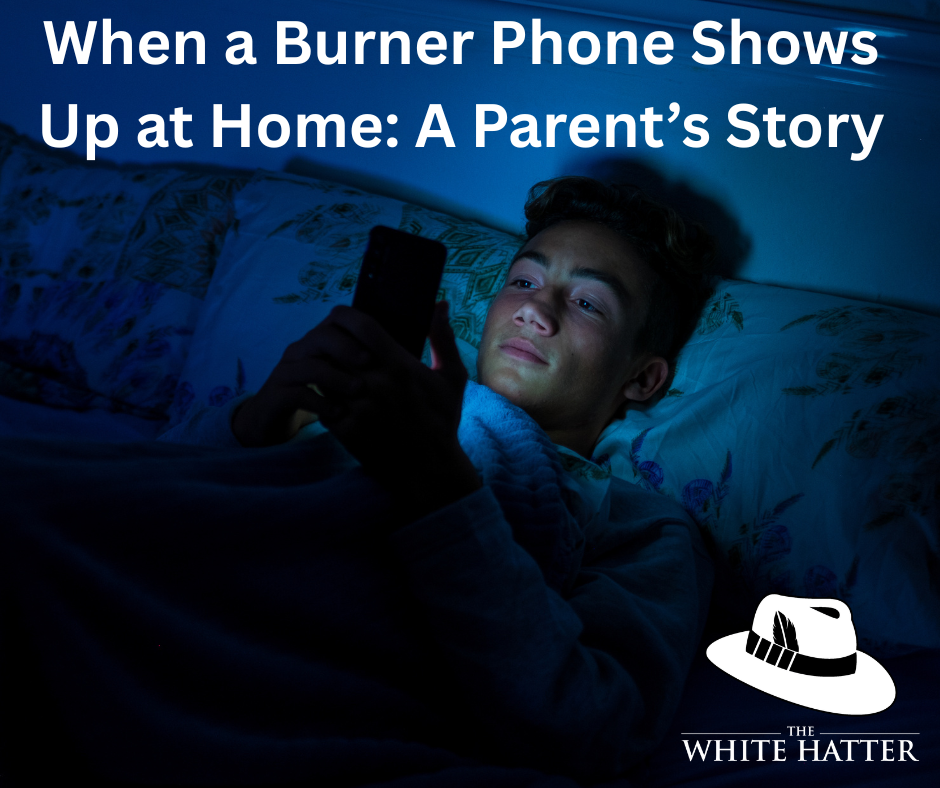Youth and Teens Deserve the Truth About Online Risks - Why We Stand Strong On Our Messaging!
- The White Hatter

- Oct 31, 2025
- 4 min read

One of our beliefs, “knowledge, and the understanding and application of knowledge is power.” However, the power of knowledge only comes when knowledge is understood, applied, and shared openly and honestly. When it comes to the onlife world, that means being open and honest with youth and teens about what the real threats are online, in an age-appropriate way, and what the real consequences of their actions can sometimes be.
Some adults may feel that certain topics we discuss with students, like digital peer aggression, sexting, sextortion, hypersexualization, online pornography, or online predation and exploitation, are too “uncomfortable” or “inappropriate”. Even when these topics are some of the biggest risks youth and teens face online, especially for those under the age of 16yrs. Yet, after presenting to hundreds of thousands of youth across Canada, the overwhelming feedback tells a different story. Most students don’t walk away feeling scared, they walk away feeling empowered. They leave knowing how to protect themselves online, how to help friends, and how to take control and critically think about their digital choices. More importantly, it empowers many to come forward to seek help not knowing what was happening was wrong, and not their fault!
The youth and teens most at risk online are often those who remain uneducated about who poses a threat, what those threats look like, where they occur, how they unfold, and why offenders target certain individuals. This isn’t speculation, it’s something Darren saw repeatedly over his 30 years in law enforcement and to this day as an online investigator and digital literacy and online safety presenter. Time and again, the most vulnerable are the ones left in the dark, not because their parents or caregivers didn’t care, but because “some” adults mistakenly believed that protecting children meant shielding them from difficult and inconvenient truths that need to be discussed with our youth and teens, given today’s onlife world.
However, ignorance doesn’t equal safety. Sheltering kids from conversations about online crime, exploitation, predation, or manipulation doesn’t protect them, it enables those who want to target our youth and teens. When we avoid teaching them how offenders operate or how a simple click can spiral into a crisis, we leave them unequipped to recognize danger before it happens.
True protection comes from education, not avoidance. It comes from giving youth and teens the tools, language, and confidence to understand their onlife world, to recognize when something isn’t right, and to ask for help without fear of judgment. As parents, caregivers, and educators, our role isn’t to filter out reality and friction, it’s to guide them through it. As we like to say, “proper pre-planning can often prevents poor onlife performance!” However, this can only happen through open and honest conversations.
It’s true that a very small number of students sometimes feel “triggered” by certain discussions we have in our presentations, and that response should never be dismissed. However, it should also be understood, when a youth or teen reacts strongly to an honest conversation about online harms, the important question should be “why?” Are they a survivor of an online crime who is reliving trauma? Or, are they perhaps someone who has engaged in targeting harmful behaviour toward others, and is now confronting that reality because they fear being called out by their peers? We have seen both, and no matter what the cause, both situations call for empathy and support, but they also underscore why these conversations must continue, and not be silenced because of the few who may be triggered.
We once presented at a school where a counsellor told us, “Thanks, you just made my job busier, now these kids are going to come forward to say they’re being targeted.” An interesting response from someone whose role it is to support those very students. In contrast, another school we recently visited, one that invites us back year after year, had its counselling staff and principal thank us for our message. They shared how it continues to resonate with students and helps them address many of the daily challenges that come with technology, which allows them to help the most vulnerable at their school who are hesitant to reach out for help.
Avoiding difficult truths doesn’t protect youth and teens. It leaves them vulnerable. Silence gives power to offenders, scammers, and predators, (including those who they know, love, or trust) who count on youth and teens not knowing how to recognize a red flag, or how to report an offence. Information, when shared with care and accuracy, does the opposite, it shines light into the dark of the internet where harm thrives.
There’s a clear difference between fear-based education and fact-based education. Fear isolates and shames. Facts inform and prepare. The White Hatter’s approach has always been about Facts, Not Fear. We believe that youth deserve the truth, presented in an age-appropriate way, so they can make informed choices. When we trust them with knowledge, we communicate respect. We tell them, “You’re capable of understanding this. You’re capable of making smart decisions. You’re capable of protecting yourself and others.”
Parents and caregivers play a vital role in reinforcing this message. Avoid softening or skipping difficult topics out of discomfort. Instead, match honesty with compassion. When your child learns about online threats and dangers, talk through their reactions. Ask open questions like, “How did that make you feel?” or “What would you do if this happened to a friend?” These conversations build resilience and strengthen the bond between you and your teen.
When a small but vocal minority shapes decisions or public dialogue despite most disagreeing or remaining neutral, we do a disservice to the many who stand to benefit from honest, fact-based education. Allowing a few voices to mute necessary conversations doesn’t protect youth, it withholds knowledge that could empower and safeguard them.
The onlife world isn’t going away. Neither are its risks and challenges. However, by fostering open and honest, evidence-based discussions, we can ensure our youth and teens aren’t left to navigate those risks in the dark. Here at the White Hatter, we will continue to stand strong on our messaging.
Open and honest evidence based knowledge isn’t just power, it’s protection!
Love what we do, how we do it, and why we do it!
Digital Food For Thought
The White Hatter
Facts Not Fear, Facts Not Emotions, Enlighten Not Frighten, Know Tech Not No Tech














